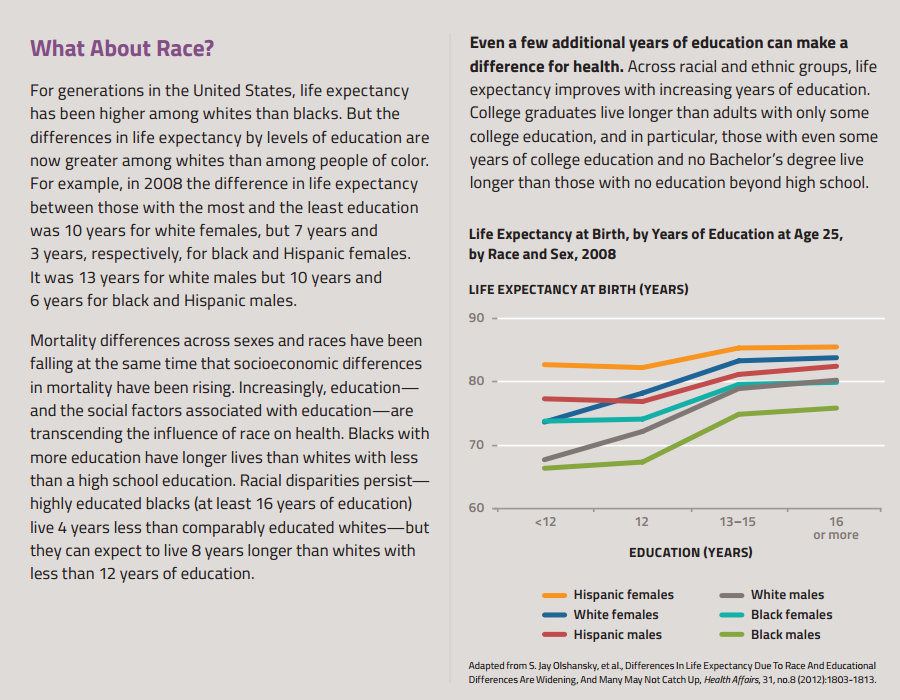- education matter more know because the economy has evolved to be more knowledge-based
- white women are the key group affected by this change
- whites as a group are no longer top of the heap
- the graph below indicates that hispanic women of all educational levels are longer lived than most other groups of any educational exposure – interesting
Brief (PDF): education_health_rwjf409883

Education: It Matters More to Health than Ever Before
We know with greater certainty than ever before that Americans with fewer years of education have poorer health and shorter lives. In fact, since the 1990s, life expectancy has fallen for people without a high school education, a decrease that is especially pronounced among White women.
Why is the link between education and health more distinct today? In the current knowledge economy, education paves a clear path to good jobs and a steady income. Completing more years of education creates better access to health insurance, medical care, and the resources to live a healthier lifestyle.
This brief and video are products of the Virginia Commonwealth University Center on Society and Health’s Education and Health Initiative, a program to raise awareness about the links between education and health. This is the first in a series of four briefs that will explain these complex connections, discuss the role of health care reform, and demonstrate why investing in education can cut health care costs.
Key Findings
- People with less education are living shorter, sicker lives than ever before.Americans with less education face higher rates of illness, higher rates of disability, and shorter life expectancies. In the U.S., 25-year-olds without a high school diploma can expect to die 9 years sooner than college graduates.
- These health disparities are even more prominent among White women.While overall life expectancy has generally increased, it has decreased for Whites with fewer than 12 years of education—especially White women. White women without a high school diploma are living shorter lives than they did in 1990.
- Investing in education saves lives and dollars. More education leads to higher earnings that can provide access to healthy food, safer homes, and better health care. In contrast, people with fewer years of education generate higher medical costs and are less productive at work.
